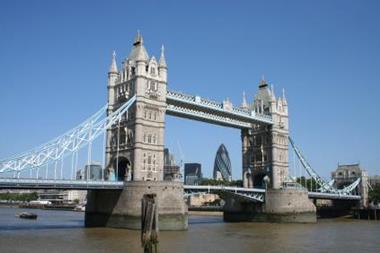What does the growing involvement of procurement in buying insurance mean for risk managers?
Some European risk managers report a growing involvement of their companies’ procurement departments in buying insurance and risk management services. Many are dubious as to whether procurement can add any value to the process. Other risk professionals believe that procurement specialists have a valuable role.
Günter Schlicht, chief executive of the German risk management association DVS, does not think there is a ‘trend’ for procurement departments to become involved in corporate insurance buying in Germany, but says that it is an issue that he has heard about from some risk managers. ‘I would be very sceptical regarding whether a procurement department can add value to the process,’ he says. ‘Insurance is not like some other commodities.’
Carl Leeman, chief risk officer, Katoen Natie, and member of the Belgian risk management association BELRIM, does not consider that the involvement of procurement departments in insurance buying is widespread in Belgium. However, he too has heard that it is becoming an issue in some companies and some countries.
‘In my own company, the reverse situation tends to apply,’ he explains. ‘Our risk management department provides guidelines to the people who do our procurement on what they have to take into account in other areas such as engineering, where we design the contracts that they have to use for their programmes. We also have an input into environmental and safety purchasing issues.’
As CRO of a company that specialises in providing value-added logistics and high-tech services, he also gives an insight into how they view the involvement of procurement. ‘We prefer to deal with the guys who are directly involved, because in most cases the procurement department just compares prices. It’s not that they’re incompetent but just that they are not always aware of the technical issues that can emerge.’
A growing trend
While the fact that the procurement people may be more objective in their purchasing is a plus point, he believes that the frequent lack of technical skills, certainly in a diversified group, is a great disadvantage.
David Tate, head of national project management, corporate customer group, HSBC Insurance Brokers, comments: ‘This is a growing trend, one which started to gain momentum in 2003/4. At the time procurement took the lead, owning and operating the whole insurance tender process. Over the last two years we have seen a mellowing of this position, the trend being for risk managers to lead the process, with input and support from procurement. The majority of listed company insurance broker tenders are now run this way, with procurement involved only in an overseeing capacity.’
Alastair Torbet, HSBC’s UK sales director, believes that businesses, risk managers and company boards are increasingly becoming sophisticated buyers. ‘This means that the purchase of professional services has moved on from being a commodity purchase to obtaining the right balance between the best cost and the greatest value.’ In order to achieve the optimum balance between cost reduction and value, he considers it is critical for risk manager and procurement teams to work closely in the review process.
Tate also says that the involvement of procurement has added value to the overall process. ‘The balance Alastair describes, with risk managers leading and procurement offering guidance and support, enables both parties to maximise returns.’
“Insurance is not like some other commodities.
Independence and integrity
Will Gurry, an associate director of Protiviti’s business risk practice, takes the view that procurement specialists can add significant value to the contract and tendering process, although he believes that the final decision should rest with the process owner.
He explains: ‘When we tender for services, particularly for large projects, the procurement functions are invariably involved. And, in relation to governance and compliance, for contracts above a pre-determined amount, we increasingly recommend to organisations that they should involve procurement. In the public sector it is of course mandatory, but certainly the large FTSE organisations have increasingly centralised and built up their procurement functions.’
Gurry believes that involving procurement departments adds value from a risk management perspective. ‘They add a high degree of probity in terms of ensuring integrity through the tendering process, because they are generally more independent than the process owner. This is particularly relevant when organisations are going out to procure services because the evaluation criteria are often far more intangible. Selection often comes down to personal relationships and personality fit, and procurement professionals can provide a good check and balance,’ he maintains.
Gurry suggests that the procurement role has evolved from just eliminating cost and rationalising the number of suppliers, to reflecting the impact of corporate social responsibility and greater reputational risk. ‘Large businesses are now recognising that you cannot look simply at cost but have to look at the qualitative aspects as well.
‘If you are going through a formal tender process involving large global insurance contracts, that’s where your procurement professionals can be involved. There is no doubt that evaluation and setting the criteria rests with the risk manager, but it’s good to have someone independent involved.’
Cost is not the primary issue
Martin Metcalf, CEO, Strategic Thought plc, is also well used to having clients’ procurement departments involved. ‘As to whether they add or remove value – their job is to remove value from our point of view in the sense that they usually want to reduce cost!’ he says. But he stresses that cost is not the primary issue. ‘As regards our software and services, there needs to be buy-in from the top and a clear sense of the objectives. Otherwise, you are open to the procurement department knocking you down because they regard what you’re providing as a commodity.’
So is the procurement department friend or foe? It comes back once again to that issue of communication – such an important risk management skill. The risk manager needs to successfully communicate his evaluation and criteria in respect of the organisation’s needs. And then the perceived objective of procurement – achieving the best price – may not be top of the agenda.



















